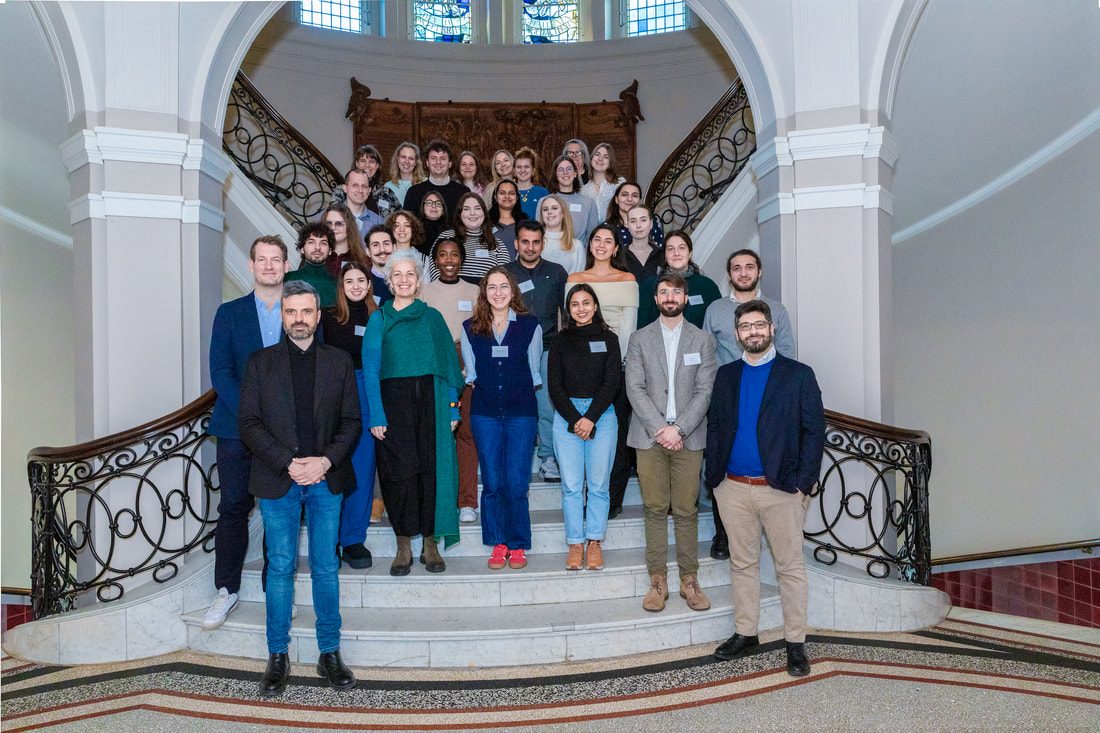Erasmus+ Blended-intensive program 2024

- This event has passed.
Digital Constitutionalism and the UN Global Digital Compact
April 22, 2024 - April 26, 2024

This Blended Intensive Program (BIP) was organized by the Digital Constitutionalism Network (DCN) and offered students from different European universities an opportunity to come together, both virtually and in person, to discuss issues pertaining to digital developments and related global policy development processes. The BIP is part of a teaching partnership that the DCN has promoted since 2019. The 2024 BIP followed upon a successful BIP organized at the University of Padova in 2023. The BIP continued to engage participants in a transdisciplinary way, with a focus on theories and methods from legal studies, media and communication, and political science.
The 2024 BIP was dedicated to exploring the intersections between Digital Constitutionalism and the UN Global Digital Compact. It aimed at providing students with the theoretical, analytical and methodological tools to make sense of the values and principles that (should) guide regulatory arrangements for the digital age, including those proposed in the consultation process for the UN’s Global Digital Compact due to be agreed at the September 2024 Summit of the Future.The 2024 BIP included two components – one online and one offline – during which students explored a range of issues related to digital constitutionalism and the UN Global Digital Compact. The program also provided participants transversal skills, including: public speaking, group work, intercultural competences and the know-how needed for effective interventions in digital governance such as policy brief writing skills.The common policy-oriented research project, on which students worked on in small teams, focuses on research tasks related to the Global Digital Compact, specifically the influences that went into its formulation between UN member states. Here, the consultation process allows for a multi-method inquiry of a highly current topic that concerns scholars, policymakers, activists and citizens the world over. In addition to publicly available materials from the consultations, students could also conduct interviews. Students also made use of the DCN database of 321 digital bills of rights published over the past thirty years, in order to better understand the path toward the UN Global Digital Compact.
The 2024 BIP was dedicated to exploring the intersections between Digital Constitutionalism and the UN Global Digital Compact. It aimed at providing students with the theoretical, analytical and methodological tools to make sense of the values and principles that (should) guide regulatory arrangements for the digital age, including those proposed in the consultation process for the UN’s Global Digital Compact due to be agreed at the September 2024 Summit of the Future.The 2024 BIP included two components – one online and one offline – during which students explored a range of issues related to digital constitutionalism and the UN Global Digital Compact. The program also provided participants transversal skills, including: public speaking, group work, intercultural competences and the know-how needed for effective interventions in digital governance such as policy brief writing skills.The common policy-oriented research project, on which students worked on in small teams, focuses on research tasks related to the Global Digital Compact, specifically the influences that went into its formulation between UN member states. Here, the consultation process allows for a multi-method inquiry of a highly current topic that concerns scholars, policymakers, activists and citizens the world over. In addition to publicly available materials from the consultations, students could also conduct interviews. Students also made use of the DCN database of 321 digital bills of rights published over the past thirty years, in order to better understand the path toward the UN Global Digital Compact.
